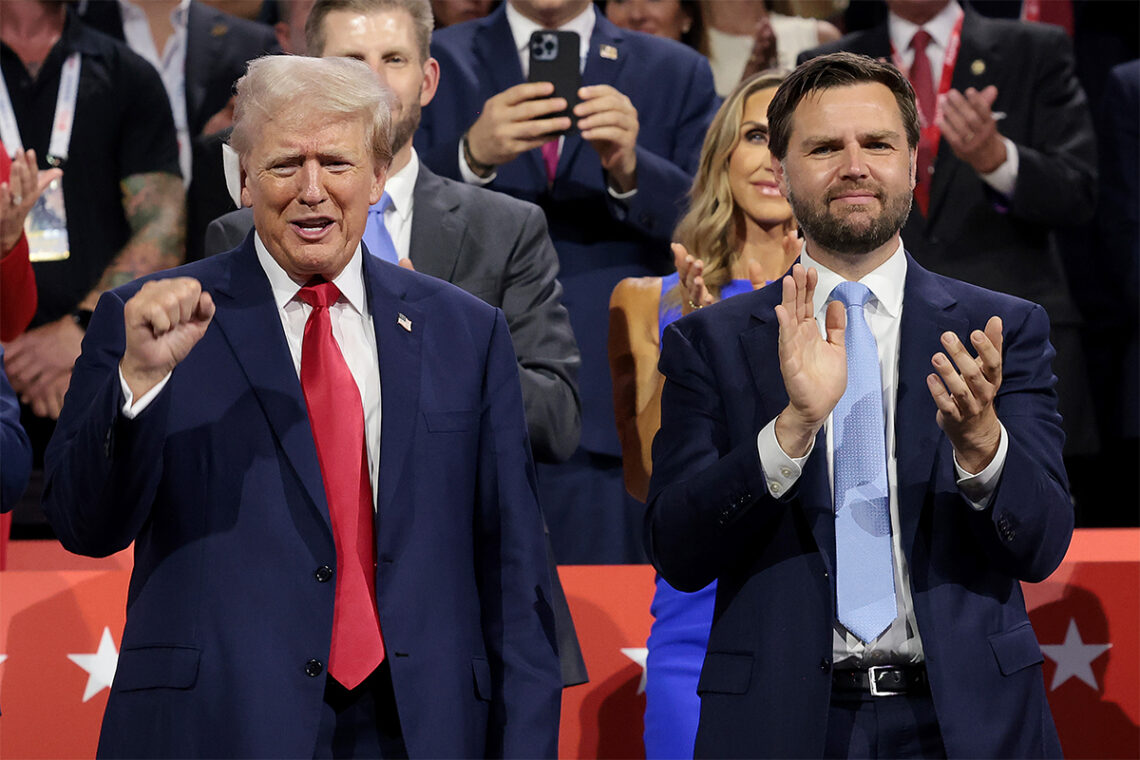The rise of JD Vance: From “Hillbilly Elegy” to the political spotlight
The announcement of JD Vance as Donald Trump’s vice-presidential running mate during the Republican National Convention has catapulted the 2020 film “Hillbilly Elegy” back into the limelight. Directed by Ron Howard and based on Vance’s memoir, the movie has surged into Netflix’s top 10, offering many Americans their first glimpse of a man with less than two years of government experience.
A fiery performance by Glenn Close as “Mamaw” stands out in the otherwise middling adaptation, which tells the story of Vance’s escape from a troubled Appalachian upbringing to an Ivy League education and a lucrative career. This narrative clearly resonated with Howard and producer Brian Grazer, both self-avowed liberals, who may have inadvertently contributed to Vance’s political ascent.
The allure of the Horatio Alger story
Hollywood has always been enamored with the Horatio Alger story, and Vance’s journey from a poor kid to a successful adult fits perfectly into this mold. By treating “Hillbilly Elegy” with the same reverence as “Cinderella Man” and “American Gangster,” Howard and Grazer helped mythologize Vance’s life, even as they missed the book’s deeper message. Vance’s memoir was less about his personal triumph and more about explaining the disconnect between Middle America and the coastal elites.
Ironically, Vance has since joined the ranks of those elites. After earning a law degree from Yale, he ran a venture capital fund backed by Peter Thiel and became a familiar face on cable news. Initially, Vance was not a Trump supporter. In a 2016 interview on NPR’s ”Fresh Air,” he openly criticized Trump, calling him ”noxious” and suggesting he might vote for Hillary Clinton. However, Clinton’s “basket of deplorables” comment seemed to push Vance closer to Trump’s camp.
The political transformation of JD Vance
Unlike many political memoirs, “Hillbilly Elegy” wasn’t written to rally Vance’s political base. Instead, it aimed to explain to liberals why Trump would win the 2016 election. The book offered a ground-level view of the issues plaguing Middle America: poverty, opioid addiction, lack of access to higher education, and economic stagnation. Vance argued that decades of liberal policies had failed these communities, making the “Make America Great Again” slogan appealing to those preoccupied with their own struggles.
In his memoir, Vance wrote, “I may be white, but I do not identify with the WASPs of the Northeast. Instead, I identify with the millions of working-class white Americans of Scots-Irish descent who have no college degree. To these folks, poverty is the family tradition.” This perspective resonated with many, but Hollywood’s portrayal of such communities often misses the mark.
Hollywood’s distorted view
“Hillbilly Elegy,” the movie, is part of a larger genre of Southern coming-of-age stories. Amy Adams plays a bedraggled version of Vance’s mother, while Glenn Close delivers a memorable performance as Mamaw. However, the film falls into the trap of romanticizing the struggles of Middle America, much like other Hollywood productions.
In contrast, films like Nicole Riegel’s “Holler” and Elaine McMillion Sheldon’s “King Coal” offer more authentic portrayals of similar stories. These films depict the resilience and struggles of people in former industrial towns, highlighting the quicksand-like nature of poverty and ignorance.
The outsider’s journey
Vance’s memoir also delves into his feelings of being an outsider at Yale. Despite his success, he never fully related to the “elites” and instead navigated the system to achieve his goals. This experience shaped his conservative ideals, which he now champions alongside Trump.
Speaking to Variety in 2022, Ron Howard expressed surprise at Vance’s political transformation. “He struck me as a very moderate center-right kind of guy,” Howard said. “He apparently wasn’t interested in running for office.” Yet, Vance’s alignment with Trump has paid off, culminating in his selection as Trump’s vice-presidential running mate.
As Vance steps into the political spotlight, the question remains: Is he still holding his nose, or has he fully embraced the Trump agenda? Only time will tell how this new chapter in Vance’s life will unfold, but one thing is certain: his journey from “Hillbilly Elegy” to the political arena is a story that continues to captivate and provoke reflection.

 Italian
Italian







